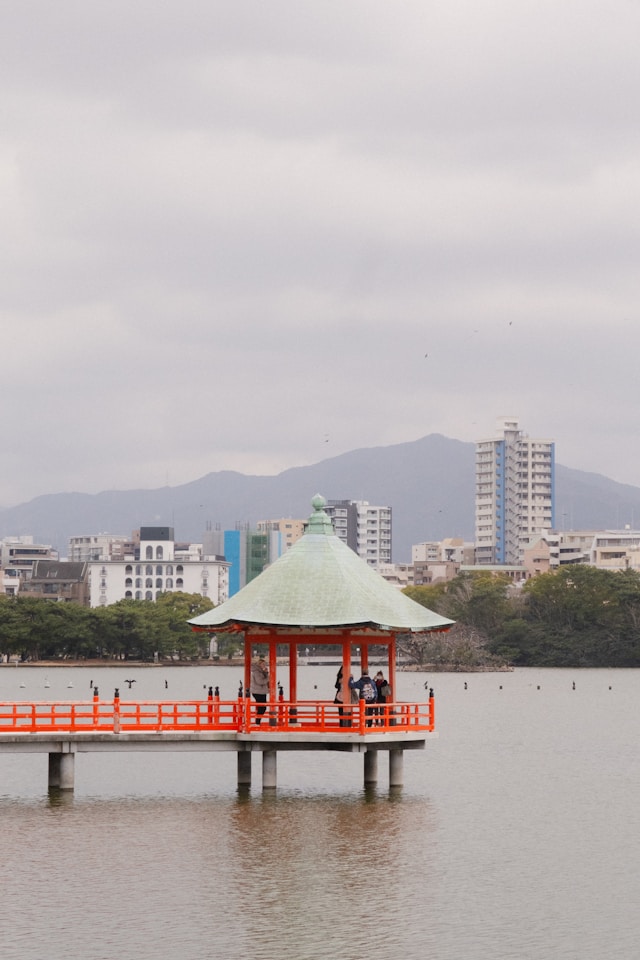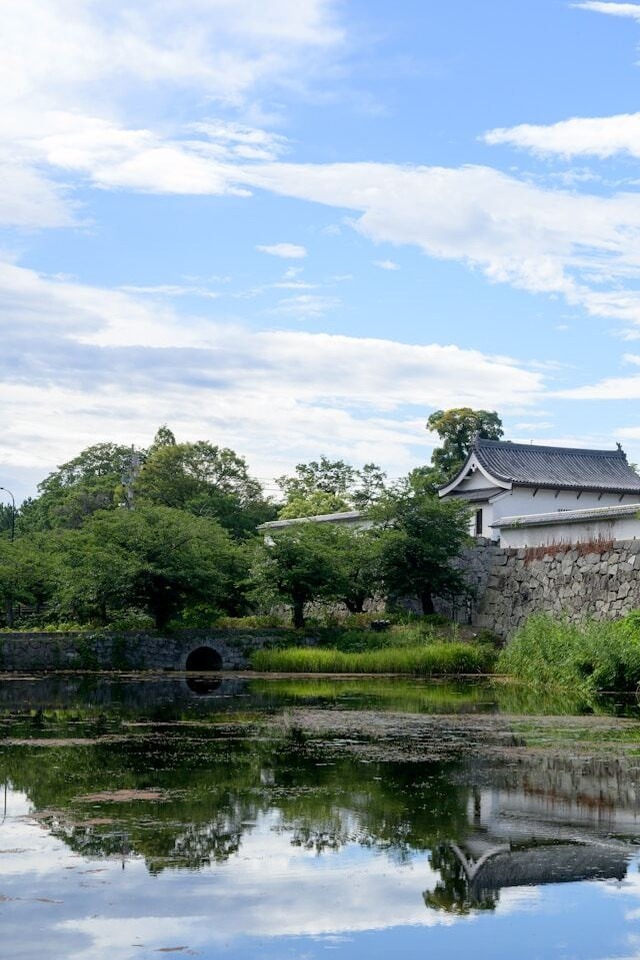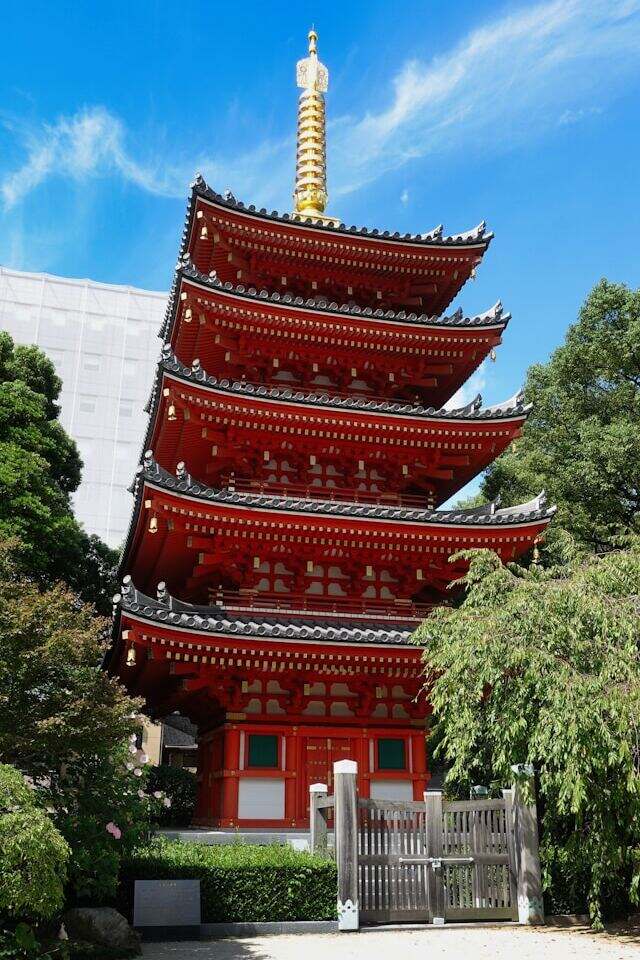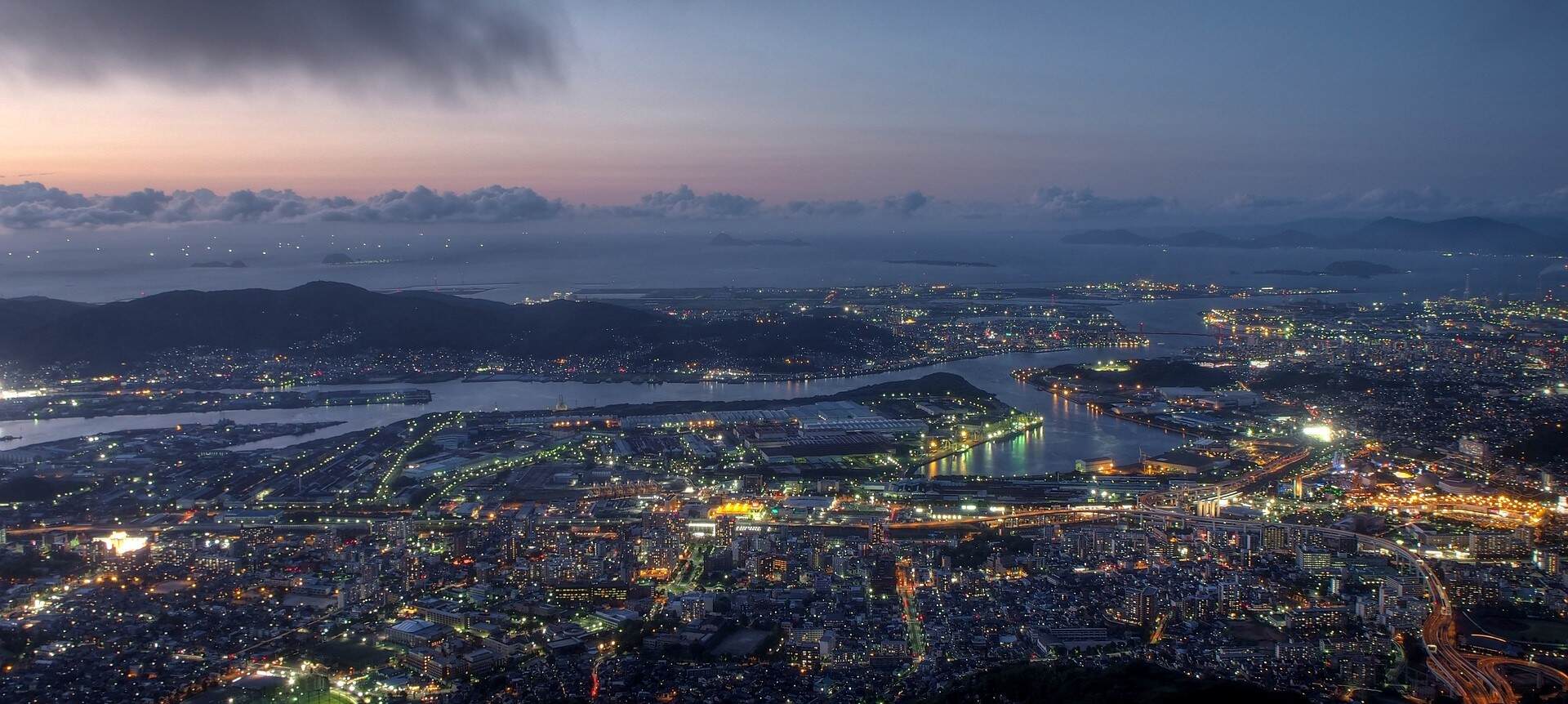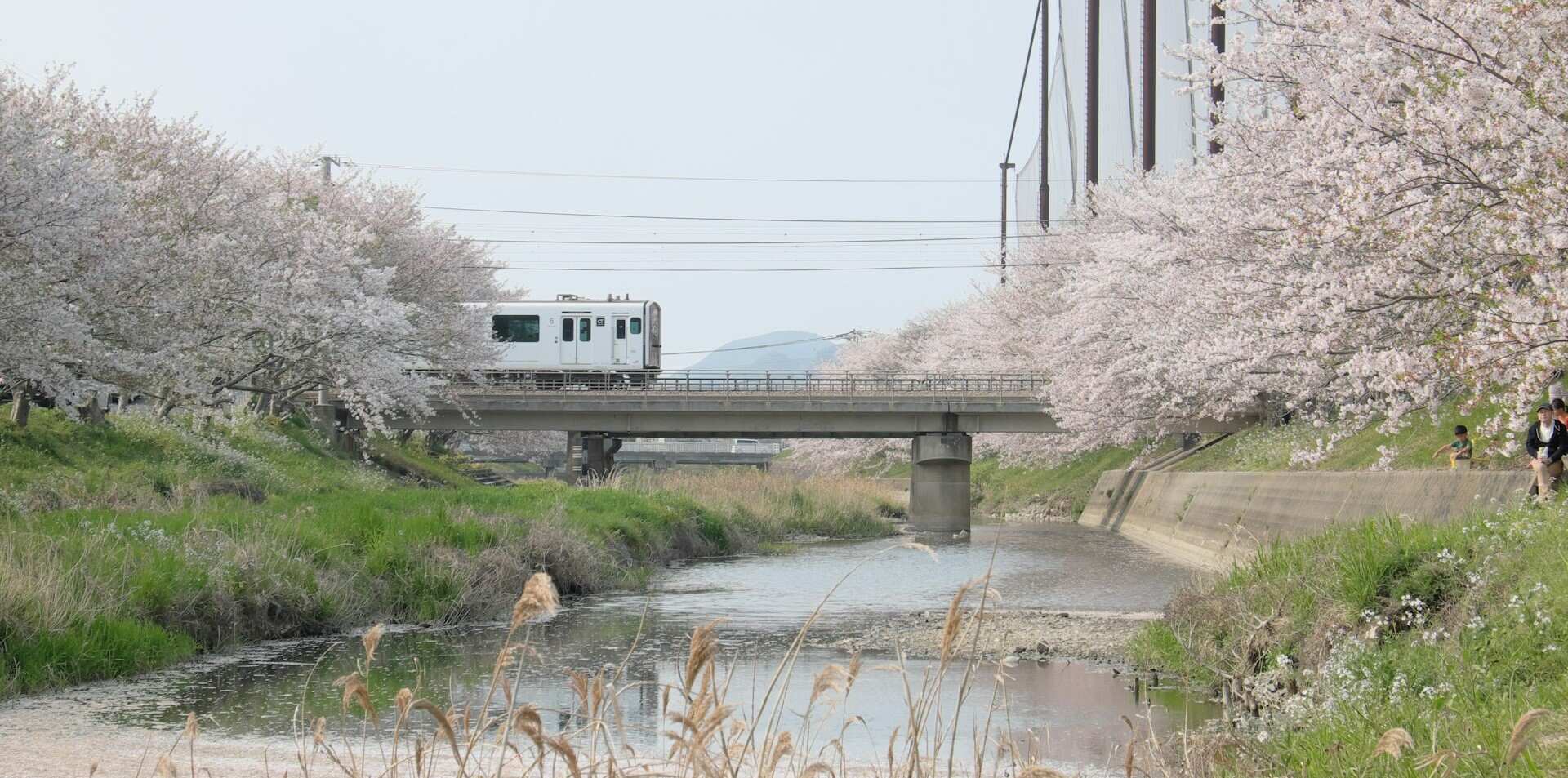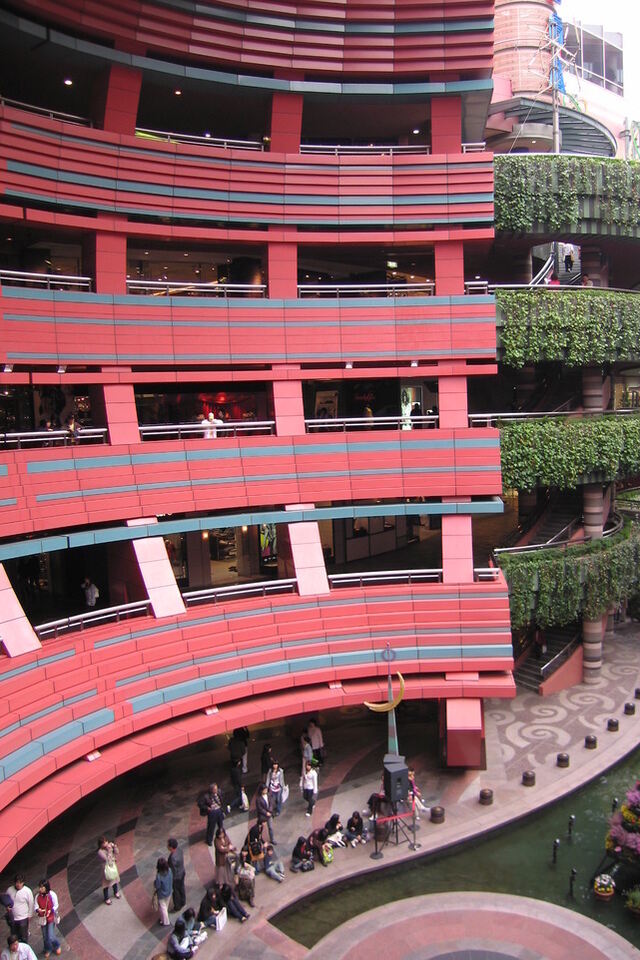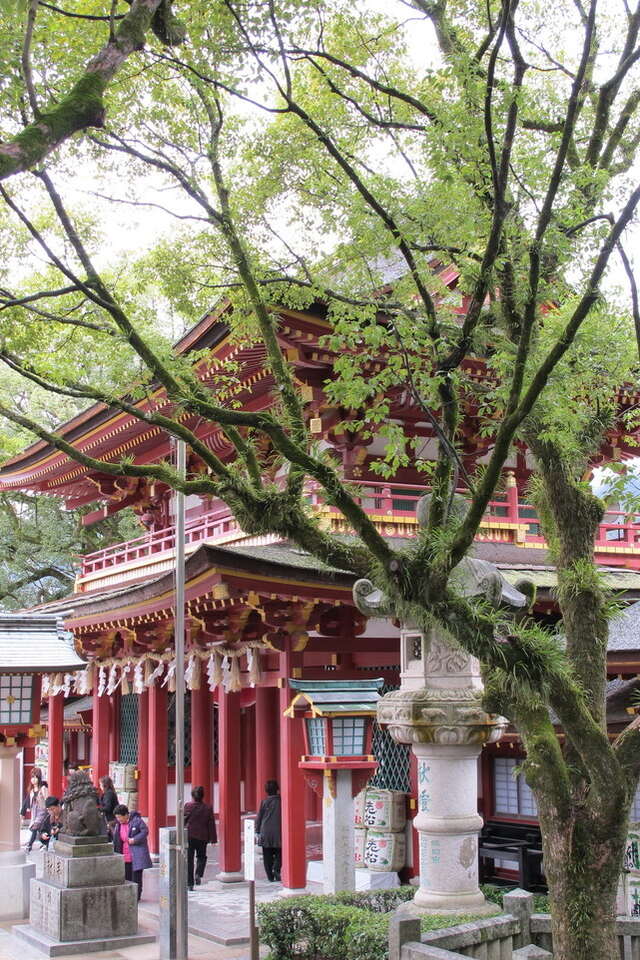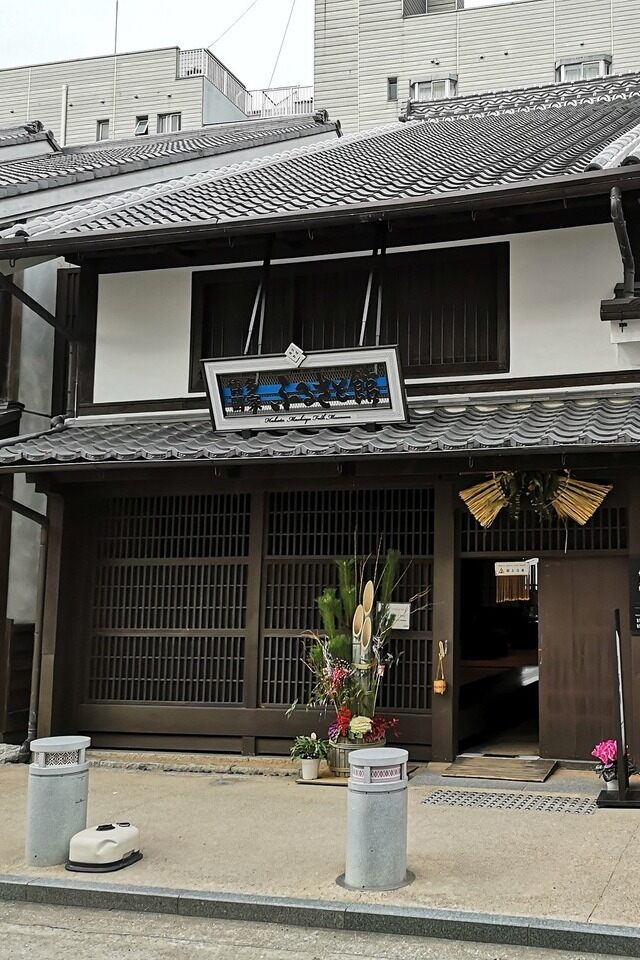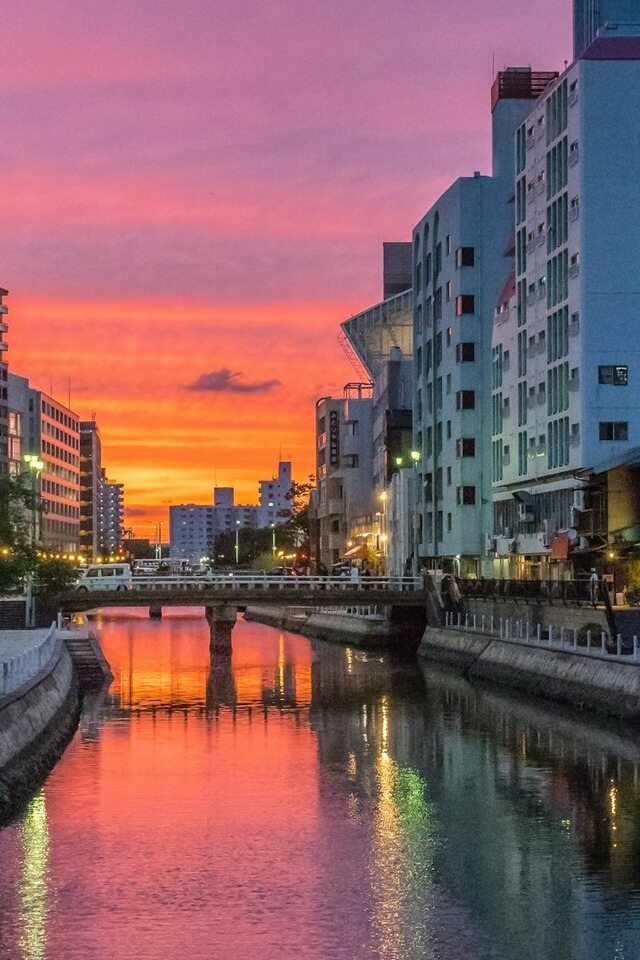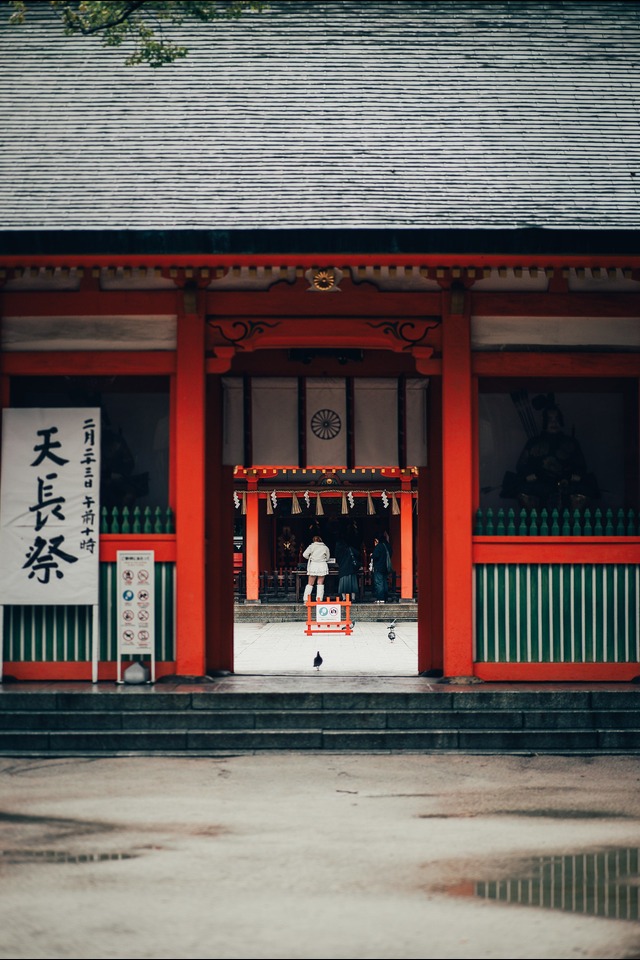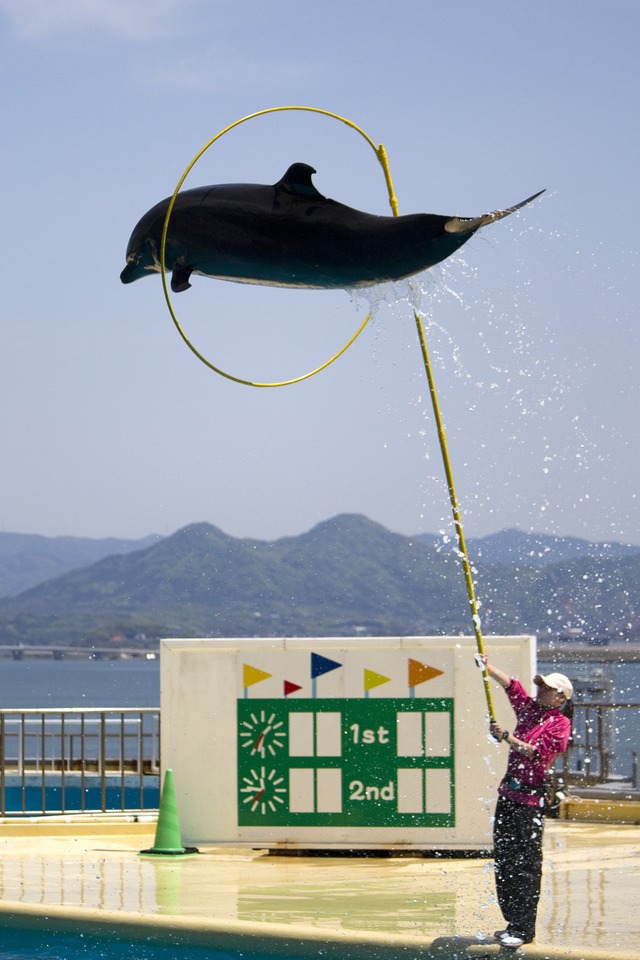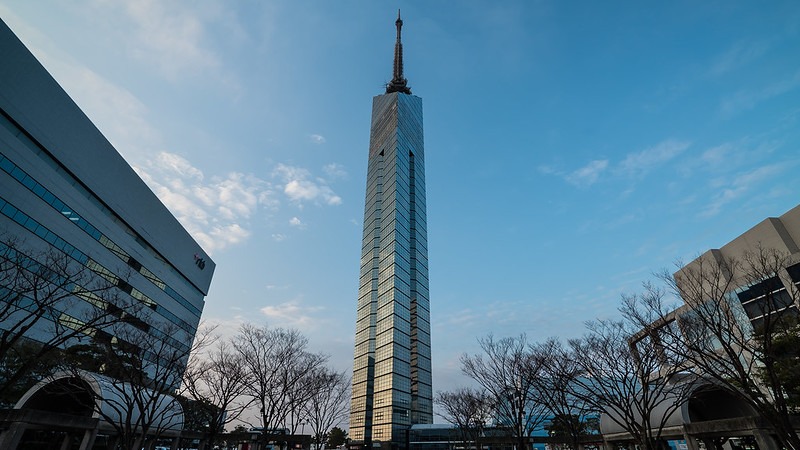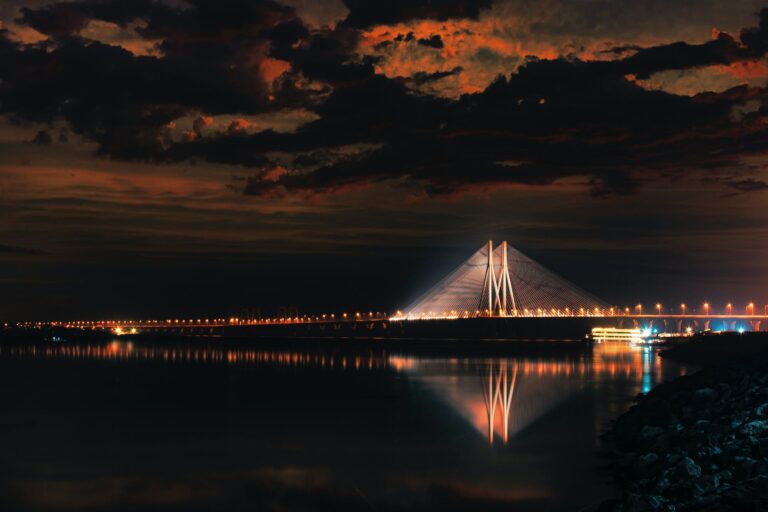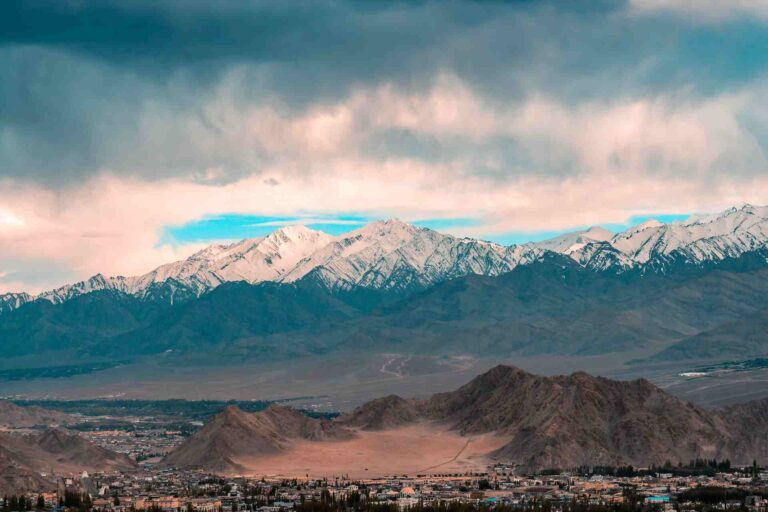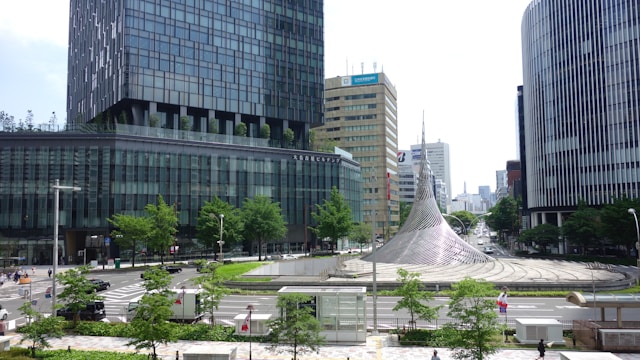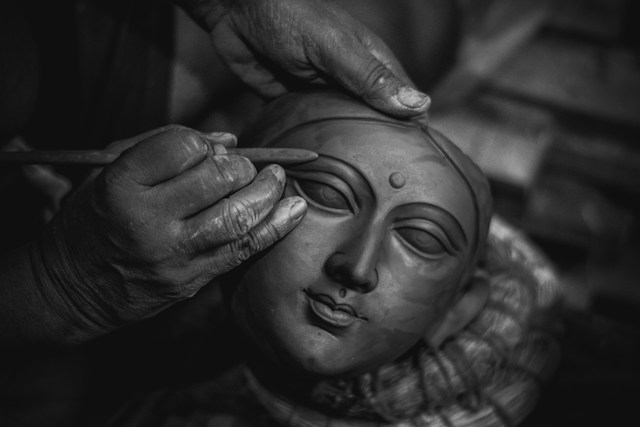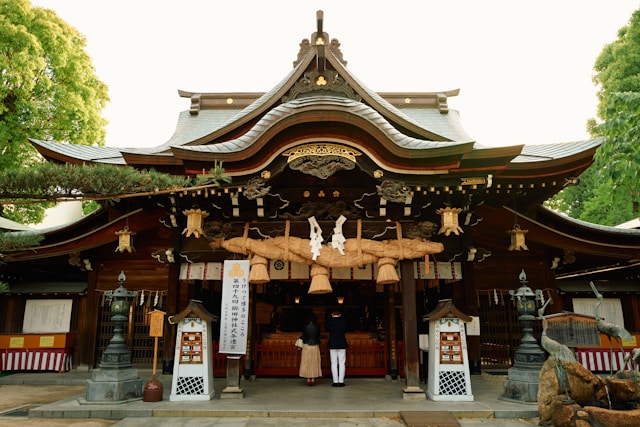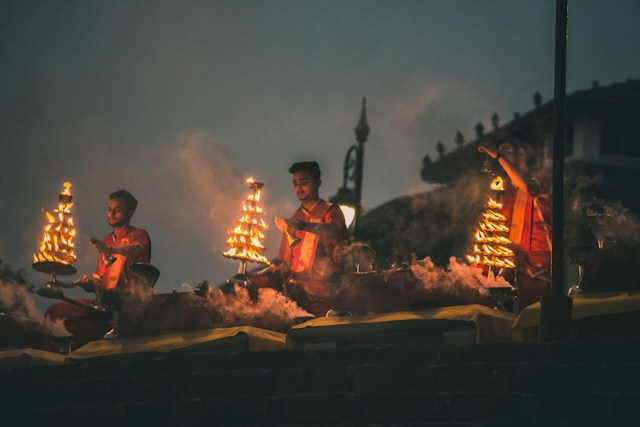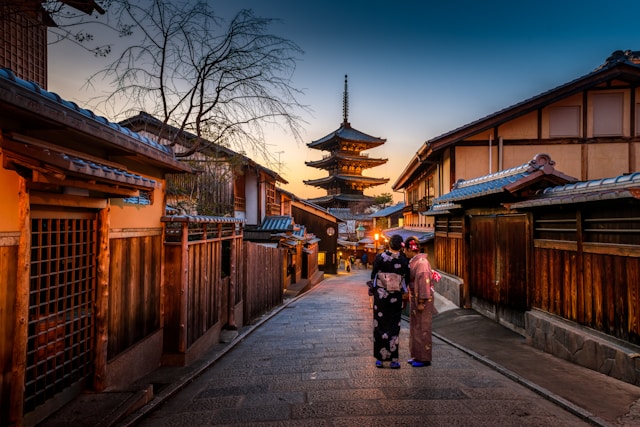Day 1: Arrival and Exploring Central Fukuoka
Morning:
- Arrival in Fukuoka: Arrive at Fukuoka Airport or Hakata Station. Fukuoka is well-connected by both air and rail, making it easily accessible.
- Hakata Station: Start your trip with a visit to Hakata Station. Not only is it a transportation hub, but it also has great shopping and dining options.
Afternoon:
- Kushida Shrine: Head to Kushida Shrine, one of Fukuoka’s oldest and most significant shrines. Learn about the Hakata Gion Yamakasa festival and see the massive festival floats.
- Tochoji Temple: Visit Tochoji Temple, famous for its giant wooden Buddha statue and the five-story pagoda.
Evening:
- Canal City Hakata: Spend the evening at Canal City Hakata, a large shopping and entertainment complex. Enjoy shopping, dining, and watching the fountain shows.
- Yatai Food Stalls: For dinner, head to the riverside yatai food stalls. Try local specialties like Hakata ramen, mentaiko (spicy cod roe), and gyoza.
Day 2: Historical Sites and Cultural Experiences
Morning:
- Ohori Park: Start your day with a visit to Ohori Park. Enjoy a leisurely walk around the lake, rent a paddleboat, or visit the Japanese garden.
- Fukuoka Castle Ruins: Located adjacent to Ohori Park, explore the ruins of Fukuoka Castle and get a panoramic view of the city from the observation points.
Afternoon:
- Fukuoka Art Museum: Visit the Fukuoka Art Museum, located within Ohori Park, showcasing a variety of contemporary and traditional art.
- Maizuru Park: Walk through Maizuru Park, which surrounds the castle ruins and is especially beautiful during cherry blossom season.
Evening:
- Tenjin Area: Head to the Tenjin area for shopping at Tenjin Underground Shopping Mall and enjoy the bustling nightlife.
- Izakaya Dinner: Have dinner at a local izakaya (Japanese pub) in Tenjin. Sample a variety of small dishes and local sake.
Day 3: Day Trip to Dazaifu and Yanagawa
Morning:
- Dazaifu Tenmangu Shrine: Take a train to Dazaifu (30 minutes from Fukuoka). Visit the Dazaifu Tenmangu Shrine, dedicated to the deity of learning. Walk through the scenic approach lined with plum trees.
- Kyushu National Museum: Explore the Kyushu National Museum to learn about the history and culture of Kyushu Island.
Afternoon:
- Komyozenji Temple: Visit Komyozenji Temple, known for its beautiful rock garden and serene atmosphere.
- Yanagawa Boat Tour: Travel to Yanagawa (another 30 minutes from Dazaifu). Enjoy a traditional boat tour through the picturesque canals of Yanagawa, known as the “Venice of Kyushu.”
Evening:
- Unagi Dinner: In Yanagawa, try the local specialty of unagi (eel) at one of the riverside restaurants.
- Return to Fukuoka: Head back to Fukuoka in the evening and relax at your hotel.
Day 4: Modern Attractions and Shopping
Morning:
- Momochi Seaside Park: Start your day with a visit to Momochi Seaside Park. Relax on the beach, visit the Fukuoka Tower for a panoramic view of the city, and explore the surrounding area.
- Fukuoka City Museum: Learn about Fukuoka’s rich history and cultural heritage at the Fukuoka City Museum.
Afternoon:
- Marizon: Check out Marizon, a seaside complex with shops, restaurants, and wedding venues. It’s a great spot for a leisurely lunch by the sea.
- Robosquare: Visit Robosquare to see various interactive robots and learn about the advancements in robotics.
Evening:
- Shopping in Hawks Town Mall: Spend your last evening shopping at Hawks Town Mall, which offers a variety of stores and entertainment options.
- Dinner at Ramen Stadium: End your trip with a visit to Ramen Stadium in Canal City. Sample different styles of ramen from various regions of Japan.
Additional Tips:
- Transportation: Fukuoka has an efficient public transportation system with subways and buses. Consider getting a prepaid IC card for convenience.
- Local Cuisine to Try: Don’t miss Hakata ramen, mizutaki (chicken hot pot), motsunabe (offal hot pot), and mentaiko (spicy cod roe).
- Best Time to Visit: Fukuoka is beautiful year-round, but spring (cherry blossom season) and autumn (fall foliage) are especially pleasant.
